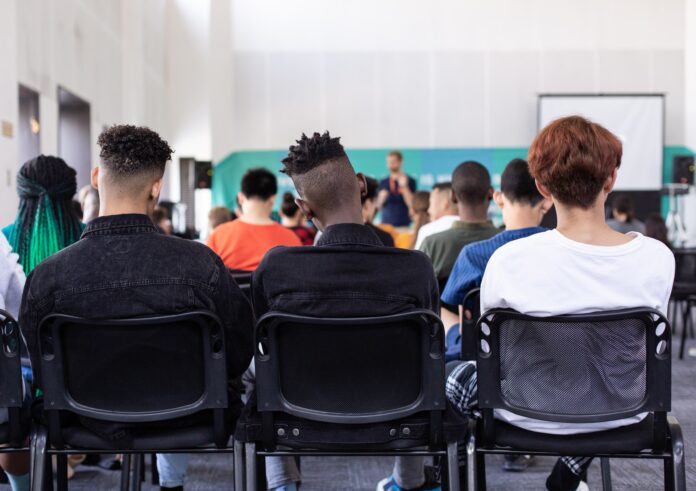“what i learned during Black History Month”
by billy, age 8 (or 18)
Black people were slaves
who were set free by a king
named Martin Luther, after
he had a dream about sitting
in the back of a bus with a lady
railroad conductor—she
convinced him not paying people
was wrong. also, his brother
George—a farmer who
invented peanut butter,
the gas mask & the stop light—
was so good at baseball, he played
with the white kids at school
in front of the national guard.
sadly, Martin was shot
on a wintery street in Boston,
which started the war of civil
rights, the Harlem Renaissance,
and birthed president Obama.
an open letter to the student who will be convicted of rape in the next 3-5 years
none of us are even remotely surprised
after your class-shaking assault.
your non-rhetorical asking, “why
do we always have to talk about
all this women’s issues shit?”
your belief that it has no impact
on “real rapists.” as you forced
your flaccid point— a mouth-breathing
overcompensation—the young women
around you struggled to fight back,
hands stabbing the air, clawing desks
because your eyes were out of reach.
when, exhausted, they silently waited
for it to be over, you smirked. explained
they had nothing to worry about
if attractiveness measured their risk.
I was new in the building and young.
I tried to keep my responses measured,
professional. but began to write this poem—
a present for your cellmate, whose sister
was among the 1 in 6 who encountered
someone like you in college.
Click here to read Matthew E. Henry (MEH) on the origin of the poem.
Image: photo by Sam Balye on Unsplash, licensed under CC 2.0.


